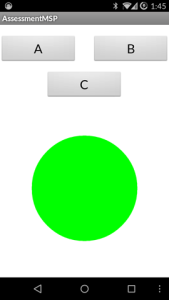Here is a sample of one of the teacher’s lesson plans developed this year. I think this sampling here gives one an understanding the level of basic computer skills required to start the programming work. See below for a link to the full curriculum progression over the full 15-20 hours.
Day 5 – Computer Skills Knowledge
Main Goal/ Overview
Have the students get familiar with “driving around” the computer so that they have more ease of use when creating apps.
Learning Objectives
Knowledge – Knowledge of computer organization.
Skills – Have the students get familiar with downloading files, where to save a file to the hard drive, files, folders, naming files, and stress organization.
Day 6 – Starting App Inventor
Main Goal/ Overview
Have the students get familiar with “driving around” App Inventor.
Learning Objectives Knowledge and Skills – Have the students get familiar with logging into Google, going to App Inventor website, hooking up tablet, connecting via USB, look at display, look at blocks, and see how that affects the tablet.

 This tool is a survey, which can be administered in-class, like any other pre-survey instrument. During the survey, the students are asked to play with a simple app, that we also designed.
This tool is a survey, which can be administered in-class, like any other pre-survey instrument. During the survey, the students are asked to play with a simple app, that we also designed.
